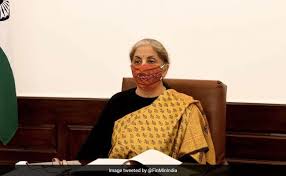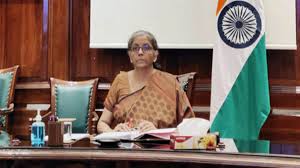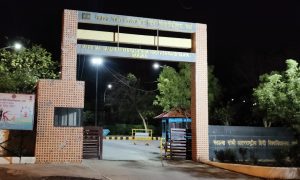Finance minister Nirmala Sitharaman on Monday addressed the media about proposals to stimulate demand in the economy hit by the coronavirus pandemic.
On indications are that the savings of government and organised sector employees have increased, the government wants to incentivise such people to boost demand for the benefit of the less fortunate, the finance minister told reporters.
Sitharaman introduced a proposal related to boost consumer spending. The plan is divided in two components: Leave Travel Concession (LTC) voucher and special festival advance scheme.
The LTC allows central government employees to travel in a block of four years – one to anywhere in India and one hometown or two hometown. The air or rail fare, as per pay scale, is be reimbursed and in addition the employees will get a leave encashment of 10 days (pay+DA) is paid.
Sitharaman said the new part of this scheme is that the employees can now encash their LTCs in the form of vouchers.
“Since the employees are not able to travel anywhere due to Covid-19, they can spend the money in buying something of their choice. But the money has to be spent on items which attract 12% or more GST,” said the finance minister.
“The spend should only be done through digital mode. And GST invoice will be required, so that the amount spent can be reimbursed to the employees,” she added.
Sitharaman said that the scheme is valid till March 31, 2021. She said that the government will incur Rs 5,675 crore on this. The finance minister added that employees of Public Sector Undertakings (PSUs) and public sector banks (PSBs) ca also avail the scheme.
On a conservative basis, we expect the LTC Cash Voucher Scheme to generate additional consumer demand in the range of Rs 28,000 crore, she said.
Elaborating on the special festival advance scheme, the finance minister said that the government will give Rs 10,000 special festival advance as prepaid RuPay cards to all its employees as one-time measure to stimulate demand. The RuPay card too will be valid till March 31, 2021.
In the second part of her address, Sitharaman said capital expenditure has multiplier effect on the economy and so the government wants to give a new thrust to the capital expenditure of both states and Centre.
The government has decided to issue a special interest-free 50-year loan to states for Rs 12,000 crore capital expenditure in three parts. In Part 1, the eight North East states will get loans worth Rs 200 crore each, Uttarakhand and Himachal Pradesh will get Rs 450 crore each. In the second part, Rs 7,500 crore will go to the rest of the states as per the 15th Finance Commission. Half of the sum will be will be given initially while the remaining upon utilization of first 50%. In Part 3, Rs 2,000 crore for the state which meets at least 3 out of 4 reforms given in Aatma Nirbhar fiscal deficit package, Sitharaman added.
The government has estimated that the measures announced today, for boosting consumer spending and capital expenditure, are likely to boost demand by Rs 73,000 crore, to be spent by March 31, 2021.
If demand goes up based on the stimulus measures announced today, it will have an impact on those people who have been affected by Covid-19 and are desperately looking for demand to keep their business going, the finance minister said.
Sitharaman’s address comes hours before the third round of Goods and Services Tax (GST) Council meeting over the issue of compensating states for the Rs2.35 lakh crore shortfall in their share of revenue from the indirect tax this fiscal year.
On October 5, the council had deferred a decision on the issue after 10 states ruled by non-National Democratic Alliance (NDA) parties insisted that the central government borrow the entire Rs 2.35 lakh crore and compensate the states.
The states were also given the option of borrowing the entire Rs2.35 lakh crore (including the shortfall caused by the Covid-19 pandemic) at a significant cost. Apart from the 10 dissenting states, 21 state governments have opted to borrow Rs1.10 lakh crore. Jharkhand, Kerala, Maharashtra, Delhi, Punjab, Rajasthan, Tamil Nadu, Telangana and West Bengal are among the states that have demurred.
By Hindustan Times




























 WhatsApp us
WhatsApp us
Pingback: crumpets disposable
Pingback: Lsm99 เว็บบอล Auto
Pingback: sf mushroom dispensary